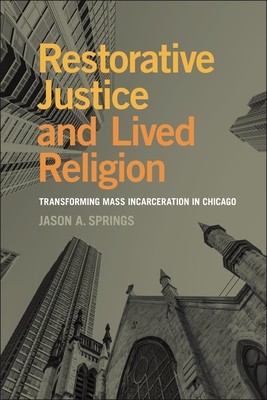
- We will send in 10–14 business days.
- Author: Jason A Springs
- Publisher: New York University Press
- ISBN-10: 1479823775
- ISBN-13: 9781479823772
- Format: 15.2 x 22.9 x 1.9 cm, hardcover
- Language: English
- SAVE -10% with code: EXTRA
Reviews
Description
Frames restorative justice as a form of moral and spiritual practice with the capacity to transform injustice
In the United States "restorative justice" typically refers to small-scale measures that divert alleged wrongdoers from a standard path through the criminal justice system by funneling them into alternative justice programs. These aim not to punish the offender, but to constructively address the harm that wrongdoing may have caused to individuals or to the community, engaging with the wrongdoer to come to a response that might heal and repair the harm. Yet restorative justice initiatives generally fail to challenge and transform the racist system of mass incarceration. This book argues that these initiatives have the potential to do so, but that we need to better understand what restorative justice is, and how it should be implemented. It claims that restorative justice can achieve its desired effect only insofar as it provides a mode of association between people that is, at its core, moral and spiritual. The book explores the ways in which restorative justice ethics and practices exhibit moral and spiritual dynamics, and what difference such "lived religious" dynamics can make for purposes of transforming structural violence. Looking to Chicago's restorative justice network as a model for developing these transformational and sustainable social changes, the volume showcases real-life examples of the kinds of practices and initiatives needed to shift the entrenched dynamics that fuel the prison-industrial complex across the United States.EXTRA 10 % discount with code: EXTRA
The promotion ends in 17d.02:31:57
The discount code is valid when purchasing from 10 €. Discounts do not stack.
- Author: Jason A Springs
- Publisher: New York University Press
- ISBN-10: 1479823775
- ISBN-13: 9781479823772
- Format: 15.2 x 22.9 x 1.9 cm, hardcover
- Language: English English
Frames restorative justice as a form of moral and spiritual practice with the capacity to transform injustice
In the United States "restorative justice" typically refers to small-scale measures that divert alleged wrongdoers from a standard path through the criminal justice system by funneling them into alternative justice programs. These aim not to punish the offender, but to constructively address the harm that wrongdoing may have caused to individuals or to the community, engaging with the wrongdoer to come to a response that might heal and repair the harm. Yet restorative justice initiatives generally fail to challenge and transform the racist system of mass incarceration. This book argues that these initiatives have the potential to do so, but that we need to better understand what restorative justice is, and how it should be implemented. It claims that restorative justice can achieve its desired effect only insofar as it provides a mode of association between people that is, at its core, moral and spiritual. The book explores the ways in which restorative justice ethics and practices exhibit moral and spiritual dynamics, and what difference such "lived religious" dynamics can make for purposes of transforming structural violence. Looking to Chicago's restorative justice network as a model for developing these transformational and sustainable social changes, the volume showcases real-life examples of the kinds of practices and initiatives needed to shift the entrenched dynamics that fuel the prison-industrial complex across the United States.

Reviews